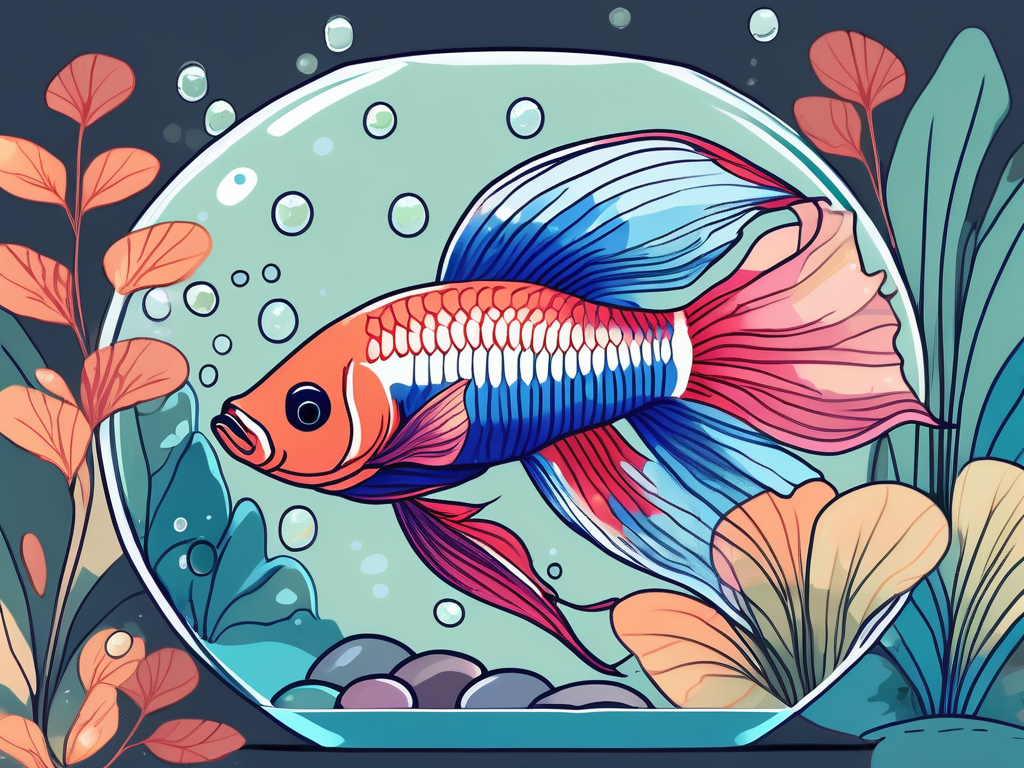

· By Aaron Rivadeneyra
Top Betta Fish Care Tips for New Owners
Welcome to the wonderful world of Betta fish! 🎉 These vibrant and charismatic creatures are not just pets; they’re like tiny, aquatic jewels that bring a splash of color and life to your home. Whether you're a first-time fish owner or adding to your aquatic family, caring for Betta fish can be a rewarding experience. Let's dive into the essentials of Betta fish care to ensure your finned friend is happy and healthy!
Setting Up the Perfect Betta Home
Creating a cozy and safe environment for your Betta is the first step in ensuring their well-being. Think of it as setting up a luxury suite for your new aquatic buddy. 🏨
Choosing the Right Tank
While Betta fish are often sold in tiny cups, they thrive in more spacious accommodations. Imagine living in a closet versus a studio apartment! A tank of at least 5 gallons is recommended to give your Betta plenty of room to swim and explore. Plus, a larger tank is easier to maintain and keeps the water conditions more stable.
Consider a tank with a lid, as Betta fish are known to be jumpers. You wouldn't want your little acrobat to leap out of their new home!
Water Quality and Filtration
Water quality is crucial for Betta health. It's like the air we breathe—clean and fresh is best! Use a gentle filter to keep the water clean, but ensure the current isn't too strong, as Betta fish prefer calm waters. Regular water changes, about 25% weekly, help maintain optimal conditions.
Betta fish are tropical creatures, so they need warm water. A heater is essential to keep the water temperature between 76-82°F (24-28°C). Think of it as their personal spa day, every day! 🛁
Decorating the Tank
Decorating your Betta's tank is like designing their dream home. Include plants, rocks, and hiding spots to mimic their natural habitat. Live plants can enhance water quality and provide a more natural environment, but silk plants are a great alternative if you're not ready for the commitment.
Avoid sharp or rough decorations that could damage your Betta's delicate fins. Remember, safety first! 🛡️
Feeding Your Betta: A Culinary Adventure
Feeding your Betta is more than just tossing in some flakes. It's a chance to bond and ensure they get the nutrition they need. Think of it as preparing a gourmet meal for your tiny friend. 🍽️
Understanding Betta Diet
Bettas are carnivorous, which means they thrive on a protein-rich diet. High-quality Betta pellets or flakes should be the staple of their diet, but variety is the spice of life! Supplement their meals with treats like bloodworms, daphnia, or brine shrimp.
Feed your Betta once or twice a day, offering only what they can consume in about two minutes. Overfeeding can lead to obesity and water quality issues, so it's best to keep portions small and manageable.
Recognizing Feeding Behavior
Observing your Betta's feeding habits can provide insights into their health. A healthy Betta will eagerly swim to the surface to eat. If your Betta seems disinterested or sluggish, it might be a sign of stress or illness.
Remember, feeding time is also playtime! Interact with your Betta during meals to build a bond and keep them mentally stimulated.
Understanding Betta Behavior
Betta fish are known for their unique personalities and behaviors. Getting to know your Betta is like learning the quirks of a new friend. 🤝
Recognizing Normal Betta Behavior
Bettas are curious and active, often exploring their tank and interacting with their environment. They may flare their gills and fins as a display of strength, especially when they see their reflection. This is normal and part of their natural behavior.
Each Betta has its own personality—some may be more laid-back, while others are more energetic. Spend time observing your Betta to understand their unique traits.
Signs of Stress or Illness
Just like us, Betta fish can experience stress and illness. Watch for signs such as clamped fins, lethargy, or a lack of appetite. These could indicate that something is amiss in their environment or health.
If you notice any unusual behavior, check the water conditions and make sure your Betta is not being disturbed by other tank mates or excessive noise.
Betta Fish Health and Maintenance
Keeping your Betta healthy involves regular maintenance and a keen eye for any changes. Think of it as being a detective in the world of fish care! 🕵️♂️
Regular Tank Maintenance
Routine tank maintenance is essential for a healthy Betta. Perform regular water changes, clean the tank and decorations, and monitor water parameters like pH and ammonia levels. This keeps the environment clean and reduces the risk of disease.
Use a water conditioner to remove harmful chemicals like chlorine from tap water before adding it to the tank. It's like giving your Betta a fresh, clean bath! 🚿
Monitoring Betta Health
Regularly observe your Betta for any signs of illness or stress. Look for changes in color, behavior, or appetite. Early detection is key to addressing health issues before they become serious.
If you suspect your Betta is unwell, consult with a veterinarian experienced in fish care. They can provide guidance and treatment options to help your Betta recover.
Conclusion: Enjoying Life with Your Betta
Caring for a Betta fish is a delightful journey filled with discovery and joy. By providing a comfortable home, a nutritious diet, and attentive care, you'll ensure your Betta thrives and brings endless happiness to your life. Remember, each Betta is a unique, limited edition companion, so cherish every moment with your finned friend! 🌟
Now that you're armed with these top Betta fish care tips, you're ready to embark on an exciting adventure with your new aquatic buddy. Enjoy the vibrant colors, playful antics, and the soothing presence of your Betta fish. Happy fish keeping! 🐠
